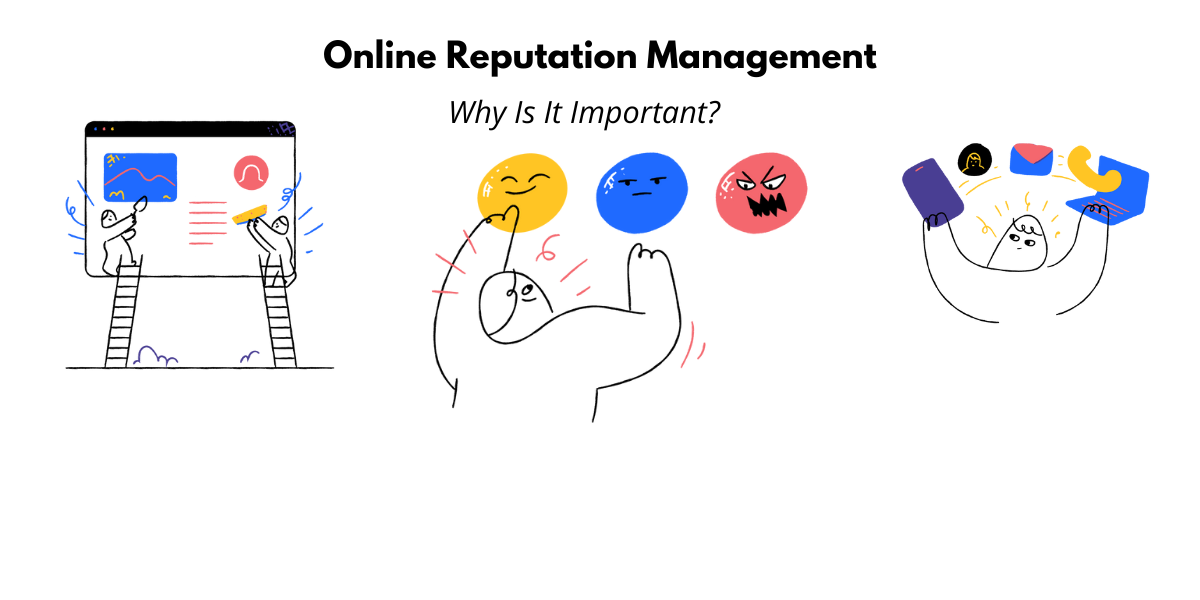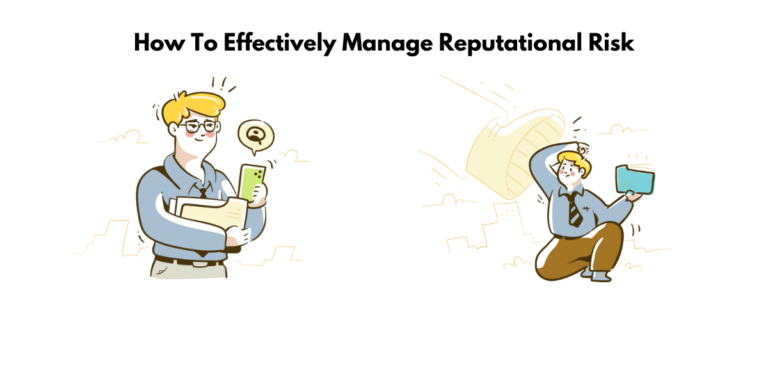Online Reputation Management
An online reputation is the perception of a person or business as portrayed by the Internet. It can be positive or negative and affects everything from personal relationships to professional opportunities. Yext Reviews is a platform that helps businesses manage and improve their online reputation. The platform allows businesses to respond to customer reviews, control what information is displayed about them online, and track their progress over time. The rise of digital and mobile technologies has shifted the landscape of online reviews, making it more important than ever for businesses to have a strong online presence.
Undoubtedly, businesses today need to focus on their online reputations. With the proliferation of social media, review sites, and anonymous rating tools, consumers are increasingly looking for reviews before making a purchase decision. In fact, according to a study by BrightLocal, 88% of consumers say that they look for own-up reviews on local businesses – up from 84% in 2016. This means that the quality of your business or product is often determined by the opinions expressed online by past and current customers. And if you’re not happy with the way your business is being portrayed online, then you need to take steps to manage your online reputation.
At the same time, it is important to remember that any attempts to add bias erode consumers’ confidence in the long run. They present a biased view of the experience you offer at your business. As such, businesses need to monitor website reviews and take them seriously as a source of customer feedback.
What is reputation management online, and why is it important?
Online reputation management is the practice of monitoring and influencing your online reputation. It is important because your online reputation can impact judgments made about you by others. This includes everything from potential employers to romantic partners. There are a variety of techniques you can use to manage your online reputation, including but not limited to search engine optimization, social media marketing, and public relations.
Online reputation management (ORM) is the practice of monitoring, influencing, and improving the perception of a person or organization on the Internet. ORM can be difficult to change, so managing your online profile is crucial for achieving the outcome you want. In business, an individual’s or company’s online reputation can affect their bottom line through lost customers, missed opportunities, and even legal issues.
Why is online reputation management necessary?
Online reputation management is necessary because it makes the user experience better. If a company has an online presence, it deals with many potential customers who may be hesitant to purchase if they believe the company is dishonest.
Online reputation management is necessary because your online persona and brand can greatly impact how people perceive you. How you handle customer interactions, public relations, social media content, and reviews can affect how people view you and your business.
There are a few reasons why online reputation management is necessary:
First, bots can easily access public records and compile information to create a dossier on an individual. This type of harassment can damage someone’s reputation and ruin their personal or professional life.
Second, companies have much control over what is said about them online. The law known as the Communications Decency Act of 1996 protects companies from legal issues stemming from content posted by their customers. This law does not hold organizations liable for customer content posted in a court of law.
Third, people often post embarrassing and outdated information about themselves online without realizing it. Online reputation management companies help clients identify and manage cyber attacks against their brands.
Fourth, the website scrubbing personal info from the Internet includes how these databases work, why they are dangerous (and what to do about them), and how people can remove listings of their home addresses.
What does a positive brand reputation look like?
A positive brand reputation gives customers a sense of trust and assurance.
They know that they can rely on the company to provide quality products and services and that they will stand behind their promises.
Customers also feel confident in recommending the company to their friends and family. A positive brand reputation is based on a foundation of strong values and ethics. The company communicates its values honestly and openly through all aspects of its business- from marketing to customer service.
It treats employees fairly and with respect, pays them a fair wage, and provides good working conditions. The company is involved in charitable work supporting the community it operates.
Do you know what they say about your company online?
Online reputation management is important because consumers research a company before making purchases. In fact, according to a study by Nielsen, 90% of customers say they trust online reviews as much as personal recommendations. If your website is the last place your customers go to find out more about you, it’s important to ensure you have good online reviews and a strong social media presence.
Negative feedback can make or break a company. Online reviews, social media posts, and negative feedback can majorly impact your business. One bad review can cost you up to 30 customers. And with social media giving people a voice like never before, it’s more important than ever for businesses to be proactive about their online reputation.
Online reputation management is important for businesses of all sizes and makes. A good online reputation can help attract new customers and keep current ones coming back. It also helps build trust between companies and their clients. Additionally, online reputation management has increased sales revenue and improved customer retention rates.
Overall, managing your company’s online street cred is key in today’s digital world – and there are several actionable steps you can take to get started! Being upfront about your company’s policies, responding to complaints promptly, and participating in dialogue with customers are great ways to get started.
What are some common misconceptions about online reputation management?
Common misconceptions about online reputation management include not understanding the difference between fact and opinion, believing that someone else’s content is always better than your own, viewing fake news as a solution to online reputation management, and thinking that online reputation management is like social media marketing.
There are some common misconceptions about online reputation management. First, online reputation management is only for businesses or individuals with something to hide. This is not the case – online reputation management can help you improve or maintain your brand image. The goal of online reputation managers is to create a custom plan that will best improve or maintain your brand image within your budget and anticipated timeframe. Another misconception is that reputation management is a short-term commitment – this is not true! Reputation management should be viewed as a long-term investment to see the best results.
Misconception 1: Firms can delete negative results from search engines
False. Unfortunately, many firms believe that if they throw enough money at the problem, they can get rid of any negative content about them online. However, this is not the case. The Search Engine Optimization (SEO) industry has made great strides in recent years, and as a result, most negative content cannot be “deleted” from search engine results pages (SERPs). Trying to do so may result in even more negative publicity.
Misconception 2: ORM is about creating a more positive search landscape
While it is important to manage your online reputation, the goal of ORM should not simply be to create a “positive” image. Rather, achieving a more accurate and balanced representation of your digital footprint is essential. This means addressing both the positive and negative content that appears online.
Misconception 3: Digitally managing your online image starts with controlling the content on the first page of Google
This may have been true in the past, but it is no longer the case. The first page of Google is not as important as it once was, and search results are often personalized based on a user’s browsing history. Therefore, it is essential to take a holistic approach to online reputation management and address all aspects of your digital footprint.
You can never completely control your online reputation
It is impossible to completely control your online reputation because of the many factors involved, including but not limited to search engines and social media.
While taking steps to protect your online reputation, it is also important to remember that you can never completely control it. Many factors can impact how your company is perceived online, including:
The content and quality of your website and other branded online properties. How you are represented on social media networks. What others say about you online – both good and bad. Third-party websites where information about you may be published. Search engine results for your name or company.
It is important to have a digital breakwater to hold back negative content and ensure that high-quality content ranks higher on search engine results pages (SERPs). Additionally, companies should build relationships with key bloggers, journalists, and social media influencers who can help promote positive sentiment about them online.
Online reputation management is the same as crisis management plans
Online reputation management (ORM) and crisis management are often mistaken for the same thing. However, they are two different concepts. ORM is the proactive management of your online reputation by monitoring what is being said about you online and taking steps to improve your image. Crisis management, on the other hand, is reactive – it occurs when a problem already needs to be fixed. This may involve removing negative content from the Internet, issuing press releases, or creating positive content about your brand.
Brand monitoring tools can help you react quickly if there is an ORM crisis. They will alert you if any negative sentiment or mentions of your brand are detected online. It’s important to have a plan to know how best to handle a potential crisis. Industry trends can lead to the need for reputation management, and legislation changes and new cutting-edge technology could cause a crisis. Knowing your audience and how best to communicate with them should help prepare for ORM crises.
ORM is only for big companies
Online Reputation Management (ORM) is the act of managing a company’s online image. The status quo for ORM is that 71% of customers start their customer journey on Google. Here, we will cover how to effectively manage your reputation with three main points: what ORM is, how it operates, and common misconceptions about ORM.
One common misconception about ORM is that it is only for big companies. However, this could not be further from the truth! Small businesses need ORM even more than large businesses because they often do not have the same resources to combat negative publicity or reviews. Additionally, many marketers and businesses believe online reputation management is unnecessary for smaller brands due to the lack of feedback. However, as we stated earlier, 71% of customers start their customer journey on Google. So if you’re not monitoring your brand’s reputation, you’re missing out on a huge chunk of potential business!
ORMs need to be multi-faceted to address their brand’s public perception accurately. This means that an ORM team should consist of people with different backgrounds and skill sets who can work together to identify and mitigate any damage to the company’s online reputation.
Managing your online reputation is one of the most important things you can do for your business. By following the three main points we outlined above, you can ensure that your company’s online image is in good shape and that potential customers will see you positively.
You can buy your way to the top
It’s no secret that the first result in Google for a keyword can often be paid advertising from competitors. Studies have shown that the number one result on SERPs is more than 31 % of all clicks. This means that if you’re not at the top of the search results, you’re losing out on many potential customers.
But don’t worry – there are ways to compete with your competitors and improve your online reputation management. One way is to monitor your brand’s search results in an incognito window. This will help you see where your site stands in terms of SEO and how high up it appears in the search results for specific keywords.
Another way to improve your online reputation is by encouraging happy customers to submit positive feedback on ranking review sites like Yelp or TripAdvisor. Potential customers often see these ratings before looking at individual reviews, so businesses need to ensure they have as many positive comments as possible!
How can you effectively monitor your online reputation?
Online reputation monitoring is a process that needs to be tailored specifically to the needs of each business. The setup process includes choosing your target country and brand keywords and scheduling email reports. It’s important to monitor how often you’re mentioned online in different ways depending on the scope of your business. Monitoring online conversations is important to prevent negative feedback.
Being proactive is essential when it comes to online reputation management. This means being quick to react to any negative sentiment that may arise. One way of staying on top of things is by using a brand monitoring tool like Semrush. It will help you track what others say about your brand, products, and employees.
How to do online reputation management yourself?
We’ve got just the thing if you’re looking for a do-it-yourself guide to online reputation management. In our latest blog post, “The definitive guide to online reputation management,” we provide an overview of the basics of how to protect your good name online. We also describe some steps you can take if you find yourself in a situation where you need to improve your online reputation.
Our “ultimate resource” offers practical tips and advice on managing your company’s reviews and controlling your image on the web. It’s perfect for anyone who wants to be proactive about their online presence and avoid negative publicity.
In addition, if you’re struggling with bad reviews that won’t go away, our post on deleting bad reviews from the Internet provides step-by-step instructions on how to remove them.
Finally, it’s important to remember that managing your online reputation is ongoing, so stay vigilant!
How can strategic reputation management help your career?
In today’s economy, where the job market is constantly changing, and new opportunities are always arising, it’s important to have a strategic approach to reputation management. Hoffman’s book, The Start-Up of You, provides great career advice for taking advantage of these changes. Reputation management is about being transparent and authentic in your online presence – it can help you stand out from your competitors. A good online reputation manager will also protect a company’s image from the public eye by managing information released publicly. It’s important to have a strong online presence personally and professionally to take advantage of current opportunities and prospects.
How can you effectively respond to negative online content?

Nowadays, online reputation management is a crucial part of doing business. It’s necessary to have a plan in place so that you can effectively monitor your online reputation score. This involves choosing the right tools and setting up processes that work for your unique needs. You’ll need to decide on your target country, brand keywords, and the frequency with which you want email reports. You’ll also need to determine which parts of the conversation to monitor how often you’re mentioned online. Negative feedback can be prevented by monitoring online conversations and addressing complaints quickly and professionally.
Being proactive about online reputation management is the key to timely reactions. You can’t afford to wait until something bad happens before you start monitoring your online presence. Fortunately, many tools are available to help you track what people are saying about your brand, products, and employees. Semrush’s brand monitoring tool is one such example that can help you stay on top of your online reputation.
Don’t ignore it
Online reputation management is essential for any organization. Brand mentions and negative online content can significantly impact an organization’s bottom line. Semrush is a great tool that can help you do this effectively. Semrush helps manage perceptions of your brand, products, or people on the web.
Be proactive
Monitoring brand mentions and negative online content is essential for any organization. Semrush is a great tool that can help you do this effectively. Semrush helps manage perceptions of your brand, products, or people on the web. This way, you can proactively address any potential negative consequences before they spiral out of control.
Work with a reputation management company
When looking for a company to help you with your online reputation, it’s important to know what to look for. First, analyze how the company responds when you first contact it. How do they treat their customers? Are they interested in helping you resolve the issue, or are they defensive and unhelpful?
You should also ask whom you will work with if you hire the company and what their job responsibilities are. The people working on your account must be knowledgeable about online reputation management and understand how to handle negative content.
A good online reputation management service should be transparent and share information. They should keep you updated on the progress of your campaign and let you know what steps they’re taking to improve your reputation.
Public relations are focused primarily on how a company is portrayed to the general public, while online reputation management focuses more on the company’s customers. PR firms work externally to strengthen brands, while ORM is mostly reactive – meaning that companies usually hire an ORM firm after they’ve already been affected by negative content online. PR firms handle damage control and are proactive, while brands handle most online reputation management internally rather than an external firm.
What are some common online reputation management tools and techniques?
A few misconceptions about online reputation management need to be cleared up. First, online reputation management (ORM) is not just about fixing or hiding negative results. It’s also about creating a positive image and managing your brand reputation over time. Secondly, ORM should not be considered a short-term fix; it’s a long-term commitment. And finally, no company can “delete” negative search engine results with the help of ORM firms.
A few misconceptions about online reputation management should be cleared up. First and foremost, ORM is not just about burying negative content. It’s actually about creating a more balanced and accurate search landscape. In addition, managing your digital image starts with controlling the content that appears on the first page of Google. By taking proactive steps to improve your online reputation, you’ll be better prepared for potential crises.
Social Media
Social media is vital to the existence of businesses. Platforms such as Twitter, Facebook, and Instagram allow companies to connect with customers in several ways. A good reputation on social media can positively affect your business. For example, when customers have a positive experience with a company’s product or service, they are likely to share that experience on social media. This kind of publicity can lead to an increase in sales and brand awareness.
However, businesses must also be prepared for negative feedback when interacting with a company’s social media account(s). Social media feeds can go viral quickly, so it is important to have a plan to manage any potential crises.
There are many tools for social media management, including social media marketing campaigns and Social Media Engagement (SME). SMEs allow businesses to track conversations about their brand online and respond accordingly. Additionally, numerous online reputation management tools are available that help businesses manage their online presence.
Search Engine Optimization (SEO)
SEO is a process by which you can improve the visibility of your website in search engine results pages (SERP). This, in turn, can lead to more traffic and better conversions. However, SEO is not just about achieving better rankings; it’s also about minimizing negative press and content associated with your company.
One way to do this is by monitoring your brand’s search results to ensure you’re the top result. You can use an incognito window to monitor your brand’s SERP ranking to see how your site appears when someone searches for your brand name.
Another way to use SEO for online reputation management is by optimizing your site for positive sentiment terms. When you have to bid on your keywords, it helps keep the top spot and stay ahead of competitors bidding on branded terms. In addition, having a higher average rating may increase your online reputation. Encourage happy customers to leave reviews on ranking sites such as Google My Business and Yelp.
Branding
Branding is important for online reputation management. ORM is a strategy that helps influence how people see your brand and their perceptions of it. The process of online reputation management is not just limited to search engine results. It’s important to consider how your content appears in social media and reviews, as this shapes your image with customers.
A few common online reputation management tools are Google, Canva, and Hashtags. There is a difference between a marketing agency focusing on the entire company’s branding and one specializing in social media strategy and engagement.






